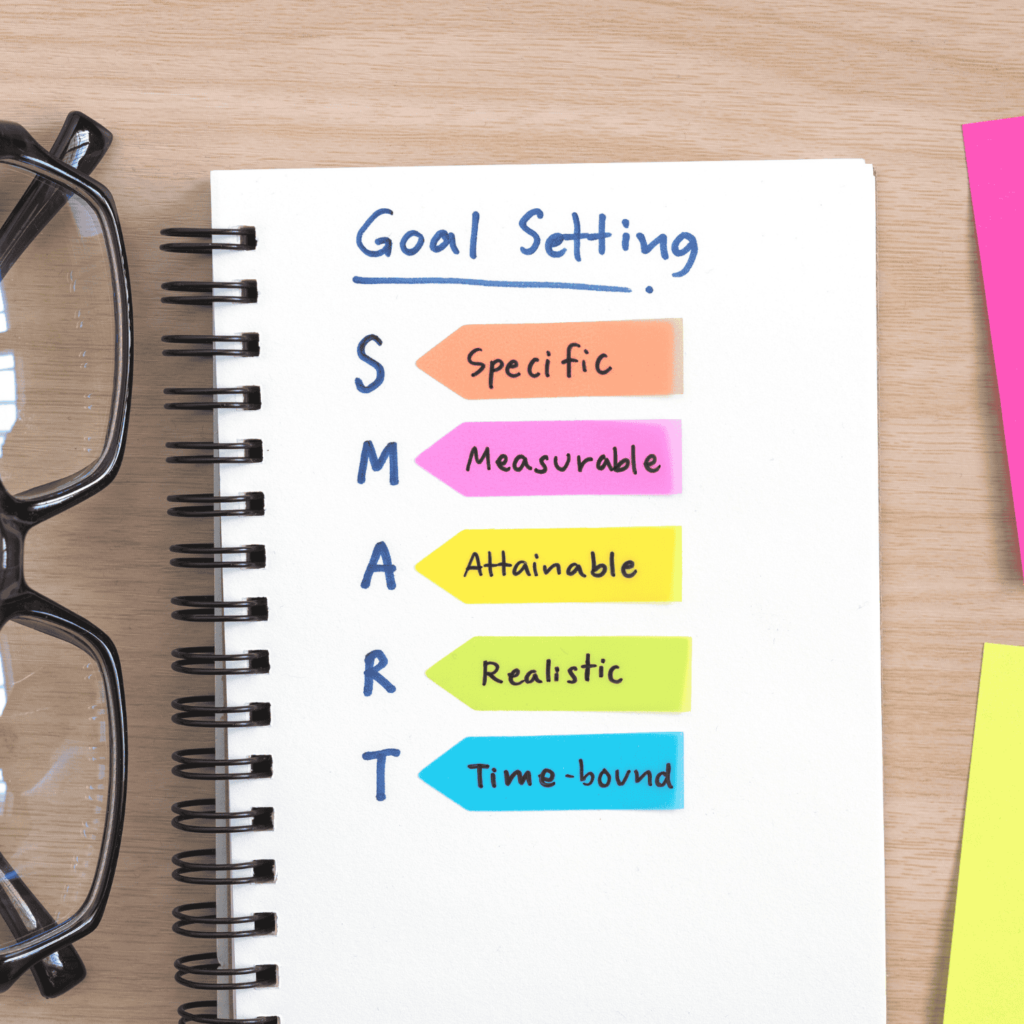In the realm of self-development, the terms milestones and goals are often used interchangeably. While they are interconnected, they serve distinct purposes on your journey toward success. Understanding the difference between the two and how to use them effectively can significantly impact your ability to achieve personal growth and build the life you envision.
This blog post dives into what milestones and goals are, why they matter, and how to integrate both into your strategy for success.
Understanding Goals
A goal is the ultimate outcome you aim to achieve. It’s the destination you envision when embarking on any endeavor, whether personal, professional, or academic. Goals provide direction and a sense of purpose. They answer the question: What do I want to accomplish?

For example:
- A student might set a goal of graduating with honors.
- An entrepreneur might aim to grow their business to six-figure revenue.
- Someone focused on health might aspire to lose or gain 20 pounds.
Goals are inherently big-picture. They challenge us to dream and push our limits. Author and motivational speaker Zig Ziglar once said, “What you get by achieving your goals is not as important as what you become by achieving your goals.” This underscores how setting and pursuing goals helps shape us into better versions of ourselves.
However, while goals are vital, they can also feel daunting. That’s where milestones come into play.
Understanding Milestones
Milestones are the smaller, measurable achievements along the way to your goal. Think of them as markers on the road that indicate progress. Unlike goals, milestones focus on short-term wins, making the journey more manageable and tangible.

For example:
- If your goal is to graduate with honors, a milestone could be achieving a 3.5 GPA in your first semester.
- If your goal is to build a six-figure business, a milestone might be landing your first 10 clients.
- If your goal is to lose 20 pounds, a milestone could be losing 5 pounds in the first month.
Milestones provide a sense of accomplishment and encourage you to keep moving forward. As leadership expert John C. Maxwell notes, “Small disciplines repeated with consistency every day lead to great achievements gained slowly over time.”
Why Goals Matter
Goals give you clarity. They provide a sense of purpose and allow you to focus your energy on what truly matters. Without goals, it’s easy to drift through life without making meaningful progress.
Here are some reasons why goals are essential:

For example:
- Direction: Goals ensure you have a clear path to follow. They act as a compass, guiding your actions and decisions.
- Motivation: The excitement of achieving a goal can keep you motivated, even during challenging times.
- Growth: Pursuing goals often requires you to step out of your comfort zone, leading to personal and professional development.
For instance, if your goal is to write a book, the process of brainstorming, drafting, and editing not only enhances your writing skills but also teaches you discipline and patience.
Why Milestones Matter
Milestones make the process feel achievable. Without them, the journey toward a goal can seem overwhelming, leading to burnout or procrastination.
Here’s why milestones are important:
1. Progress Tracking
Milestones allow you to measure your progress, giving you a clear picture of how far you’ve come.

2. Boosts Confidence
Each milestone you reach provides a sense of accomplishment, boosting your confidence and morale.

3. Breaks Down Complexity
By breaking a goal into smaller milestones, you make it less intimidating and easier to tackle.
For example, if your goal is to save $10,000 for a down payment on a house, setting milestones like saving $1,000 every month can make the process feel more manageable.

The Interplay Between Goals and Milestones
While goals set the vision, milestones pave the way. Both are equally important because they serve complementary purposes. Goals give you the “why”, while milestones focus on the “how”.

Imagine climbing a mountain. The summit is your goal, but the checkpoints along the trail are your milestones. Without checkpoints, the climb can feel endless, and without the summit, the climb lacks purpose.
It’s crucial to strike a balance. Focusing solely on milestones might lead to complacency, as you could lose sight of the bigger picture. On the other hand, focusing only on the end goal can make the journey feel overwhelming.
As author Bill Copeland wisely stated, “The trouble with not having a goal is that you can spend your life running up and down the field and never score.” Equally, without milestones, you might never even reach the field.
How to Effectively Use Both
Set SMART Goals
Make sure your goals are Specific, Measurable, Achievable, Relevant, and Time-bound. For instance, instead of saying, “I want to be fit,” set a goal like, “I want to lose 15 pounds in three months.”

Break Goals into Milestones
Divide your goal into smaller, actionable steps. If your goal is to launch a blog, milestones might include choosing a niche, designing the website, and publishing the first five posts.

Celebrate Milestone Achievements
Acknowledge and reward yourself for reaching milestones. This keeps you motivated and reminds you of your progress.

Adjust as Needed
Life happens, and sometimes goals need to be redefined. Milestones allow you to reassess and adapt without losing momentum.

Both milestones and goals are vital in the journey of self-development and growth. Goals inspire you to dream big and aim high, while milestones keep you grounded, focused, and motivated along the way.
By understanding their unique roles and using them effectively, you can navigate your path with confidence and clarity. Remember, every small step counts. As the ancient Chinese proverb goes,

So, what’s your next milestone? What goal is driving you forward? Share your thoughts and let’s keep inspiring each other to grow!





